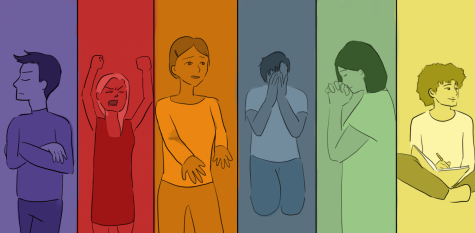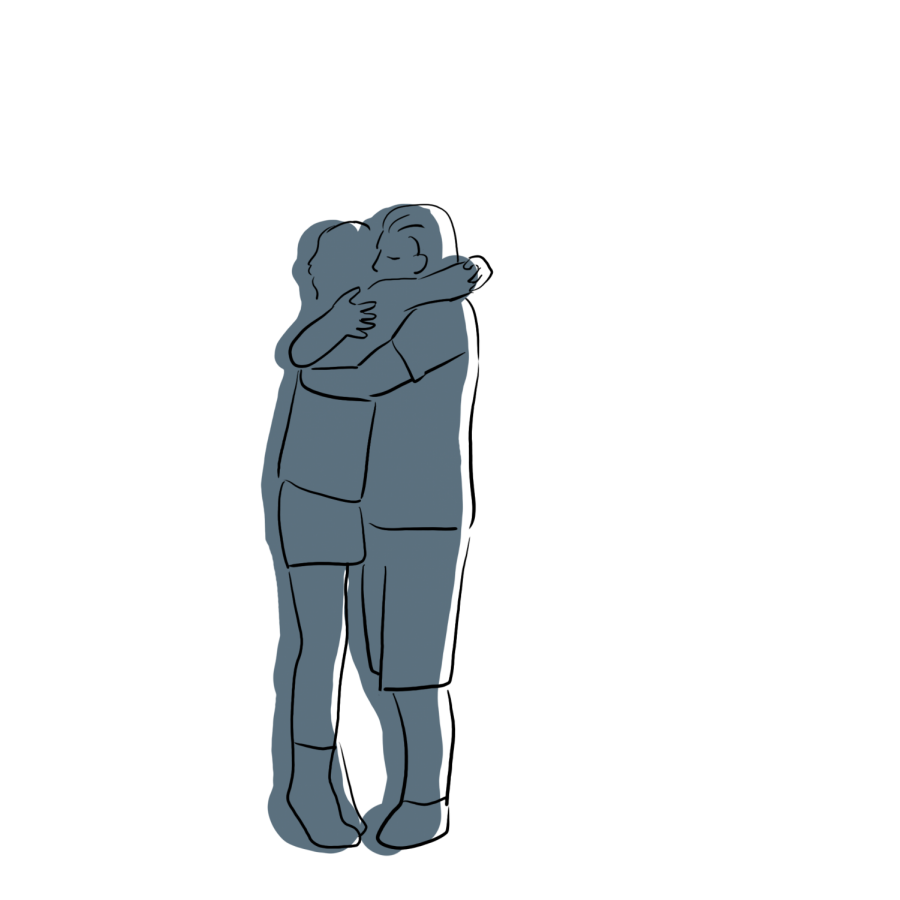Coping with grief
Community members describe their experiences and strategies managing their grief
December 10, 2021
On an evening in 2001, school-based therapist Richard Prinz received a call from his mother. After being told of his father’s passing, he was immediately brought to tears. Despite being with his wife at the time when receiving the news, Prinz felt that it was necessary to have time to grieve alone, stating that he just needed to “feel it.”
Many years later, Prinz strongly values coping mechanisms that “take [the grief] on,” such as sharing one’s feelings with others. He notes that some of the best coping methods include speaking with close friends and family and “not be[ing] afraid of the sadness.” He also recommends utilizing services, like the Centre for Living with Dying, which provide an outlet for discussing grief.
“A good coping mechanism is to let people know what’s going on [with] you, so they’re not [concerned],” Prinz said. “I think that could just add another layer to the difficult situation you find yourself in.”
Senior Ariyal Jain echoed the importance of sharing one’s feelings regarding their grief. After the passing of her grandfather and her childhood cat, Jain found that instead of processing her grief in a healthy way, she closed off, focusing instead on her schoolwork. By shifting her focus onto other topics, she ignored her grief, a coping mechanism she found to be slightly unhealthy.
“It’s hard to balance what one’s thinking and one’s logical rational reasoning with the emotional reasoning and rationale behind it,” Jain said. “I think that’s probably when people tend to fall off a cliff and go into the deep end and close off and shut down and don’t talk to anybody because it’s really hard to express your emotions sometimes.”
Jain recalls her own personal struggles with accepting her grandfather’s passing and the events leading up to the moment. For her, these collective experiences amounted to an especially painful feeling of being alone and unable to communicate with her loved ones. She attributes much of this to how isolated she felt due to hospital Covid-19 visitor regulations.
“I didn’t want to accept that it happened,” Jain said. “So I kind of just pretended to have a regular life. I think it was really hard because I didn’t know that the last conversation I had with my grandfather was going to be the last one because after he got a stroke, he wasn’t able to communicate again. And then he was placed in the hospital and during COVID. You’re not allowed to visit your family members. And so that was really hard.”
Along with voicing one’s own thoughts on their grief, Jain also brings attention to the value of recognizing the feelings of friends and family, especially during COVID-19. She finds that checking in on people periodically can aid with painful moments while simultaneously helping their mental health.
While Jain brings attention to being aware of others as they grieve, Prinz highlights the value in being aware of oneself and how reactions can be influenced by grief.
“It’s awareness of like, OK, I could be feeling a range of different things and even if I snap at somebody, it could be because I’m grieving a loss,’” Prinz said. “So to go easy on yourself and allow yourself the opportunity to be sad is important because there’s no one way to grieve.”
In general, Prinz finds that it is especially difficult to cope with the loss of a person closely ingrained in one’s life, as many people are not prepared for that burden “emotionally or physically.”
Jain remembers encountering similar feelings regarding her dependence on her cat, Shire, due to the fact that she had spent her entire life with him.
“It was really hard to process,” Jain said. “Sometimes [I cry because] I just think that I’m never going to be able to pet him again. I think that’s probably the part that hurts the most, just thinking about all the things that you’ll never be able to do again.”
Junior Hayden Ancheta also recognizes the difficulty in losing a loved one, and finds that “memories stay forever and that you can keep them with you for the rest of your life.”

Prinz notes that preserving memories as a way to honor the loss of a person is a key part of “making meaning” — one of the six stages of grief, alongside denial, anger, bargaining, depression and acceptance.
“I also find it helpful for me to continue remembering the person, remembering things that I valued about them,” Prinz said. “My dad was very generous, so I try to remember that and keep that going. I think that falls into ‘making meaning’ where the things you’ve learned from the person, the things you value about that person, you keep those alive in yourself and make it so that person is still part of your world.”















